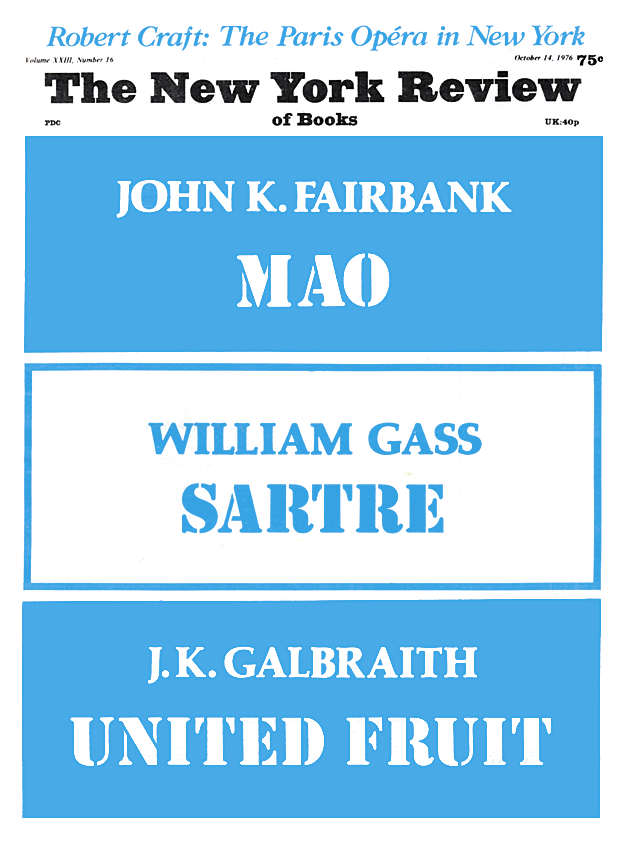In response to:
Actions Louder than Words from the May 27, 1976 issue
To the Editors:
In his recent review [NYR, May 27] of Schafer’s work [A New Language for Psychoanalysis], Rycroft says: “If Schafer’s hypothesis proves right, psychoanalytic theory will be stated in the same language as analysts use when talking to their patients—and this language will be the same one we all use outside the consulting room….” Were such a change in language made (i.e., using the same language in psychoanalytic theory as in making interpretations to patients) psychoanalysis would then follow a path directly opposite to the path followed by all sciences. Indeed every science is compelled to develop a specialized language to adequately describe the novel findings it uncovers. “One cannot,” says Whitehead in Science and the Modern World, “too carefully realize that science started with the organization of ordinary experience….” “It confined itself to investigating the connections regulating the succession of obvious occurrences.” Whitehead then goes on to say that the earlier ideas of space and time were too simple-minded and had to be modified to account for new phenomena. And again he says: “This conclusion is a direct challenge to common-sense because the earlier science had only refined upon the ordinary notions of ordinary people” (my italics). And so, for example, physicists in their theoretical formulations now speak of space-time, something we, in ordinary life (i.e., outside the laboratory), do not speak of.
Similarly, when Freud discovered the extraordinary fact of the unconscious need for punishment, a fact unknown and contradictory to common-sense experience, this finding together with others led him to the idea of the superego. This seriously-reached idea deserves neither to be treated as jargon nor as fiction as the reviewer appears to do. One may not dismiss the Freudian model of the mind as a mere fiction in any serious discussion of the structure of the mind unless one states clearly what constitutes fact and what constitutes fiction in a mental science. Is a model which brings together quite a number of clinical findings into an intelligible whole a fiction?
The idea that there should be only one language for interpretations to patients and for theoretical concepts is indeed curious. For example, can one conceive of asking a physician to use the same everyday language for conceptualizing the biochemical structure of a drug that he uses in explaining its action to the patient?
It is an intriguing aspect of Freudian theory (and a tribute to the breadth of its views) that it was formerly criticized by sociologists as being too biological and simultaneously by neurologists as being too psychological and not biological enough. It is currently criticized for being based too much on physical models which supposedly exclude meaning. It is insisted that it should confine itself to explanations in terms of meaning. Psychoanalysis however uses both categories of explanation in its theory and justifies itself in so doing on the basis that any language is to be used which most readily fits its findings. Furthermore, is there a real incompatibility between both categories of explanation?
“Meaning” is after all not in itself a clear concept. Were the demand for definition of this term to be pushed as far as the demand has been made for definition of psychoanalytic concepts, considerable embarrassment would arise.
Nonetheless “meaning” can and should be used despite the vagueness attached to it. The psychoanalyst is entitled to use it just as the physicist was once entitled to use the ambiguous term “potential energy” or as today, I am told, he uses “potential electron.” In speaking of “potential” the physicist is speaking of something that isn’t there, that in one sense is unreal—a curious paradox and yet a useful one. The demand for terminological purity can be pushed beyond the scientifically “tactful” and productive. Therefore psychoanalytic theory will continue to use both “meaning” and physical models for some time to come.
Leo A. Spiegel, MD
New York City
This Issue
October 14, 1976


